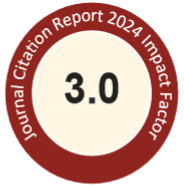Keywords
Dental pulp; Inflammation; Interleukin-1β; Melatonin; Plasminogen activation system molecules
Abstract
Interleukin-1b (IL-1β) is a pro-inflammatory cytokine and its expression is increased in inflamed dental pulp. IL-1β affects plasminogen activation system molecules, which are crucial for tissue inflammation, fibrinolysis, matrix turnover, and cell adhesion and migration. Melatonin, which provides circadian and seasonal signals, is a physiological endocrine generated by the pineal gland. It has anti-oxidant and anti-inflammatory properties. Studies are warranted to determine whether melatonin prevents IL-1β-induced expression/production of plasminogen system molecules. Human dental pulp cells (HDPCs) were exposed to IL-1β or melatonin alone or to IL-1β with/without pretreatment with melatonin or other inhibitors. The mRNA expression of uPA, uPAR, and PAI-1 was quantified using real-time polymerase chain reaction analysis. The cellular uPA, PAI-1, and soluble uPAR (suPAR) production was determined using an enzyme- linked immunosorbent assay. Signaling molecules’ protein expression was analyzed by immunofluorescent staining. We found that IL-1β (0.1–10 ng/mL) stimulated uPA and uPAR expression/production but inhibited PAI-1 expression/production of HDPCs. Melatonin inhibited uPA but stimulated uPAR/suPAR and PAI-1 expression/production. Intriguingly, melatonin prevented IL-1β-induced uPA mRNA expression/production. Conversely, melatonin enhanced the IL-1β-induced uPAR and PAI-1 mRNA expression/protein production of HDPCs. IL-1β-induced suPAR production was attenuated by U0126 (a MEK/ERK inhibitor), SB203580 (a p38 inhibitor), and 5Z- 7oxozeaenol (a TAK1 inhibitor), whereas SB203580 prevented an IL-1β-induced decline of PAI-1 production. Moreover, melatonin attenuated the IL-1b-induced p-ERK, p-p38, p-Akt and p-TAK1. These results revealed the crucial role of IL- 1β in the pathogenesis of pulpal inflammation/repair via stimulation of uPA and uPAR and inhibition of PAI-1, which can be differentially regulated by p38, Akt, MEK/ERK, and TAK1. Melatonin exerts an anti-fibrinolytic effect on IL-1β- induced changes in uPA, uPAR, and PAI-1 in HDPCs. Clinically, the melatonin levels of patients may affect pulpal inflammatory response. Melatonin and signal transduction inhibitors may be administered concomitantly for the prevention and treatment of pulpal inflammatory diseases
Recommended Citation
Chang, Mei-Chi; Zhong, Bor-Hao; Lee, Hui-Na; Chuang, Fu-Hsiung; Lee, Ming-Shu; Chang, Hsiao-Hua; Pan, Yu-Hwa; and Jeng, Jiiang-Huei
(2022)
"Melatonin exerts anti-fibrinolytic effects by regulating IL-1β-induced changes in uPA, uPAR, and PAI-1 expression/production in human dental pulp cells,"
Journal of Food and Drug Analysis: Vol. 30
:
Iss.
3
, Article 11.
Available at: https://doi.org/10.38212/2224-6614.3415
Creative Commons License

This work is licensed under a Creative Commons Attribution-Noncommercial-No Derivative Works 4.0 License.
Included in
Food Science Commons, Medicinal Chemistry and Pharmaceutics Commons, Pharmacology Commons, Toxicology Commons


Abstract Image